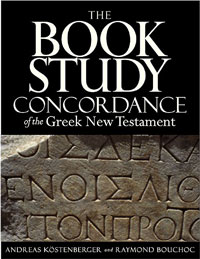Of the four learning styles, the dynamic learner (DL) is the most disliked by teachers. Why? Because teachers do not understand them, or know how to work with them. I hope, after you have read this, you will have a much better appreciation for these misunderstood learners, and know more about how to work with them.
There is a reason teachers don’t like them. Most teachers fit in any of the other three learning styles, but few are dynamic. DLs want to be in charge. Can you see the conflict?
Download and read this entire issue of Equip to Disciple (Acrobat Reader Required).
My best example of a DL is the comedian Robin Williams. Do you remember him in Dead Poets Society? Remember him standing on top of the desk quoting Shakespeare with a John Wayne accent? Remember him drumming into the students Carpe Diem? The DL isn’t into details and facts. The DL will tolerate details only if you can show the relevance over time. If you can prove what you are teaching has benefit for real life and the future, you will have them.
If you want to reach this learner there is one word you must embrace, it is the word flexibility. They demand this, and need it. This means that whenever you give an assignment and tell the students there is only one way to do this, you KNOW that the DL will come back with a “what if I…?” or “can I try it this way?” If you really care about reaching them, then work with them.
 We adopted our oldest son at age 17. He is a true DL. We soon learned that if we wanted him to stay within certain parameters, we had to draw the lines in closer knowing he would stretch them as far as he could. This is usually viewed as both a strength as well as a weakness. The strength of the DL is their ability to think with great creativity. While analytics will scrutinize everything and find few ways of doing things, the DL will list any number of ways to try something. The weakness of the DL is they need the analytic and common sense learners to work through the details in order for the project to work. If you want to motivate a DL, tell him that something is beyond his ability. In class, your best method of keeping this learner under control is to keep him close to you physically. The further he is from you the more likely he will be to be leading other students to try something a different way than you instructed.
We adopted our oldest son at age 17. He is a true DL. We soon learned that if we wanted him to stay within certain parameters, we had to draw the lines in closer knowing he would stretch them as far as he could. This is usually viewed as both a strength as well as a weakness. The strength of the DL is their ability to think with great creativity. While analytics will scrutinize everything and find few ways of doing things, the DL will list any number of ways to try something. The weakness of the DL is they need the analytic and common sense learners to work through the details in order for the project to work. If you want to motivate a DL, tell him that something is beyond his ability. In class, your best method of keeping this learner under control is to keep him close to you physically. The further he is from you the more likely he will be to be leading other students to try something a different way than you instructed.
I could tell you about a few well-know Christian DLs, but I don’t want to use names. One leads an organization that has been blessed by God sometimes in spite of its leader. This CEO has many ideas, but lacks the know-how to get them done. So, rather than finding the right people who can give him the details he needs to get it done, he goes ahead and does it anyway. For all the good this brother has done, he has also hurt a great many others.
If you want to reach them, let them have some flexibility while keeping them within your bounds. If you can figure out what inspires him, encourage him to try it, while you convey love and acceptance to him no matter the outcome. Doing this will generally keep him from manipulating others into doing things his way.
One last point about the DL. If you compare the characteristics of a DL with someone who is ADHD, they are very similar. This is one of the reasons so many schools have attempted to put too many kids on Ritalin. I have ADD and take Ritalin. It makes an enormous difference in my ability to function here at CEP. But I am not a DL. Too many DLs have been misdiagnosed as ADHD. Be careful here.
In the next issue I will tie all four of these learning styles together so you can see better how they work as a unit.

 I have longed for this book only to discover that it has been available for some time. This is not your general concordance; this one is for your study of individual books of the Bible. Rather than looking up a word and finding every reference to it in the whole Bible, I want to work with just the individual book I am studying.
I have longed for this book only to discover that it has been available for some time. This is not your general concordance; this one is for your study of individual books of the Bible. Rather than looking up a word and finding every reference to it in the whole Bible, I want to work with just the individual book I am studying.
 The Imaginative Learner that we looked at last time asks the question – Why? Why must we learn this information. Likewise, the Analytic Learn asks his/her own question – What? What are the facts here? What information can I learn from this lesson?
The Imaginative Learner that we looked at last time asks the question – Why? Why must we learn this information. Likewise, the Analytic Learn asks his/her own question – What? What are the facts here? What information can I learn from this lesson?

 We like information presented logically and sequentially. This is very western, unlike the other 2/3 of the world that is more interested in the story and the happening than the time. It is hard to teach many subjects in any way except chronologically, so we must use stories and illustrations to make them more understandable to all learners. (We all learn from stories and illustrations – it is the part of the sermon we remember the best.)
We like information presented logically and sequentially. This is very western, unlike the other 2/3 of the world that is more interested in the story and the happening than the time. It is hard to teach many subjects in any way except chronologically, so we must use stories and illustrations to make them more understandable to all learners. (We all learn from stories and illustrations – it is the part of the sermon we remember the best.)